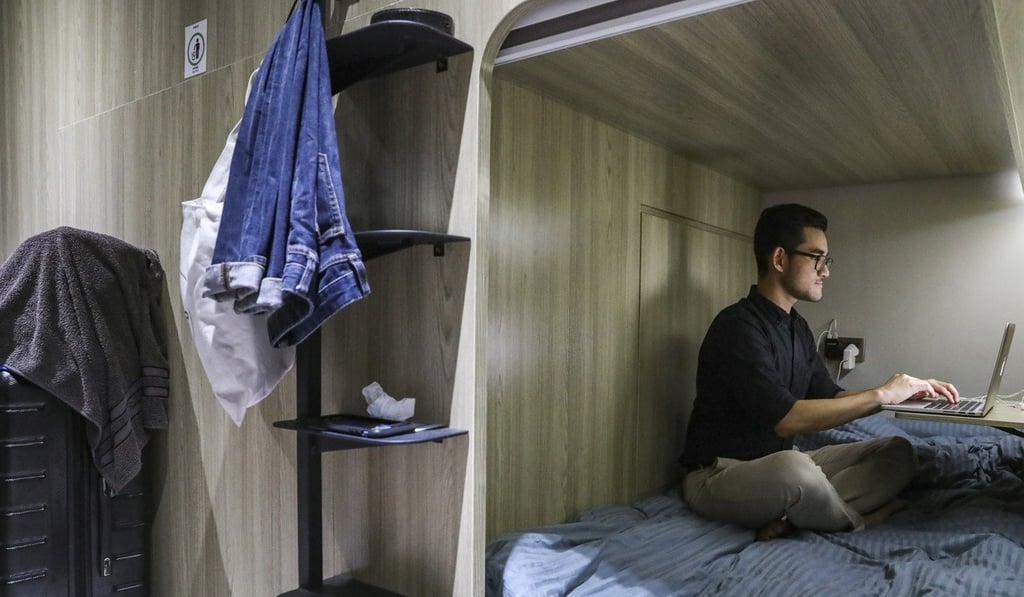Why more young people are opting for co-living spaces in Hong Kong – and it’s not just for cheap housing
- Increasing numbers of youngsters keen to escape home and enjoy a taste of freedom are opting for shared housing
- Schemes have also drawn millennials and young professionals in the city, where 76 per cent of adults aged 18 to 35 still live with their parents

Three weeks into his new job as a graduate trainee, Adriel Tjokrosaputro overslept. At 10am, he made a frantic call to his supervisor at a commercial real estate company to explain the situation.
“I told him I don’t get any sunlight in my cabin, which was why I didn’t know it was already daytime,” the 25-year-old recalls.
For less than HK$3,500 (US$450) a month, the Indonesian rents a windowless bed space in Mong Kok. Measuring about two metres in length, one metre across and one metre in height, the space resembles a cabin in a Japanese-style capsule hotel.
His cabin is one of dozens in a co-living space – a form of shared housing that emphasises community, and often includes group events such as monthly welcome parties for new residents, film screenings, rooftop yoga classes, festive meals and even shopping trips for those new to Hong Kong.

“At least I’m able to sit up straight in my cabin without hitting my head on the roof,” says Tjokrosaputro, who occupies the bottom cabin. Surrounding his bed space are five other cabins arranged across two rows.
His unit comprises two toilets, two showers, a kitchenette and laundry area, six cabins, three single rooms and one double room and can accommodate up to 11 males in a tight space. He shares his unit with six other non-locals, who make up about half the residents of co-living spaces.
